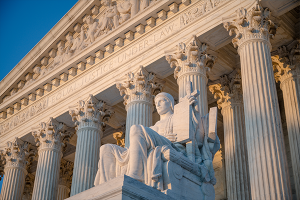Learn how the D.C. Circuit’s decision in the PHH case has removed the cloud of uncertainty surrounding advertising arrangements between settlement service providers, rejecting the Consumer Financial Protection Bureau’s novel interpretation of RESPA.
Download the slide presentation (PDF: 208 KB)
Window to the Law: PHH v. CFPB- Important RESPA Decision: Transcript
Welcome to Window to the Law. My name is Finley Maxson, NAR Senior Counsel.
In this edition, we discuss the highly anticipated decision in the PHH v. CFPB case, in which the D.C. Circuit, sitting en banc, reversed the Consumer Financial Protection Bureau’s novel interpretation of RESPA. The court reinstated the longstanding interpretation of the safe harbor provision in section 8(c)(2) of RESPA, which had allows payments between settlement service providers provided the payment is for goods and services actually provided and reasonably related to the fair market value of the goods or services provided. The decision removed any doubt created by the CFPB regarding the permissibility of these payments.
This outcome was welcome news for the real estate industry, which relies on these payments to help promote settlement services to consumers.
The facts of the case are as follows: PHH, a mortgage lender, referred borrowers who needed mortgage insurance to mortgage insurers. PHH had a subsidiary that sold reinsurance named Atrium, and the CFPB alleged that PHH primarily directed borrowers to insurance companies that purchased reinsurance from Atrium, and further, that the premiums received by Atrium were more than the actual cost of providing the reinsurance.
The CFPB brought an administrative action against PHH, in which the administrative law judge ruled that many of the mortgage reinsurance premiums received by PHH through Atrium constituted illegal kickbacks in violation of section 8(a) of RESPA. The ALJ found that the premium payments exceeded Atrium’s cost of providing reinsurance and ordered disgorgement of the net amount received by PHH, which totaled $6.4 million. Both parties appealed the ruling to the CFPB Director, Richard Cordray.
On appeal, CFPB Director Cordray issued an opinion that increased the disgorgement penalty to $109 million, stating that the payments must not only be fair market value payments for services provided, but that the payments must also be “bona fide.” Director Cordray interpreted “bona fide” as not being “tied in any way to a referral of business.” Because all of the payments made to PHH were made in anticipation of future referrals, the Director determined that all of the payments constituted a kickback in violation of RESPA.
The case was appealed to the D.C. Circuit, which reversed the CFPB’s interpretation of section 8(c)’s safe harbor. Section 8(c)(2) provides that “[n]othing in [section 8] shall be construed as prohibiting…the payment to any person of a bona fide salary or compensation or other payment for goods or facilities actually furnished or services actually performed.” The D.C. Circuit stated “nothing means nothing” and rejected the addition of a “bona fide” test, finding that these payments were lawful so long as the rest of section 8(c)(2) was satisfied.
The case was then appealed to the whole D.C. Circuit sitting en banc, which affirmed the rejection of the CFPB’s novel interpretation of RESPA.
The PHH decision is now final, and the uncertainty surrounding RESPA’s Section 8(c)(2) is resolved. In addition to rejecting the CFPB’s interpretation of RESPA, the court also ruled that regulation through enforcement is illegal, and that the CFPB must follow the administrative rule making process when providing regulatory guidance, which the CFPB formerly refused to do except through enforcement actions. As a result of this decision, the CFPB will now be required to follow the normal rule making procedures prior to issuing regulatory guidance.
So what does this decision mean for settlement service providers?
The PHH decision provides assurance that the advertising arrangements between settlement service providers may be done lawfully, provided all payments between settlement service providers comply with the safe harbor requirements of section 8(c)(2). This means that the payments must be for goods or services actually provided and for the fair market value of the services provided; there should be no exclusive arrangement between the parties; and the payments should not be for an endorsement by one of the parties. For more information on how properly structure these arrangements, please consult these additional resources on nar.realtor.
Thank you for watching this edition of Window to the Law.













